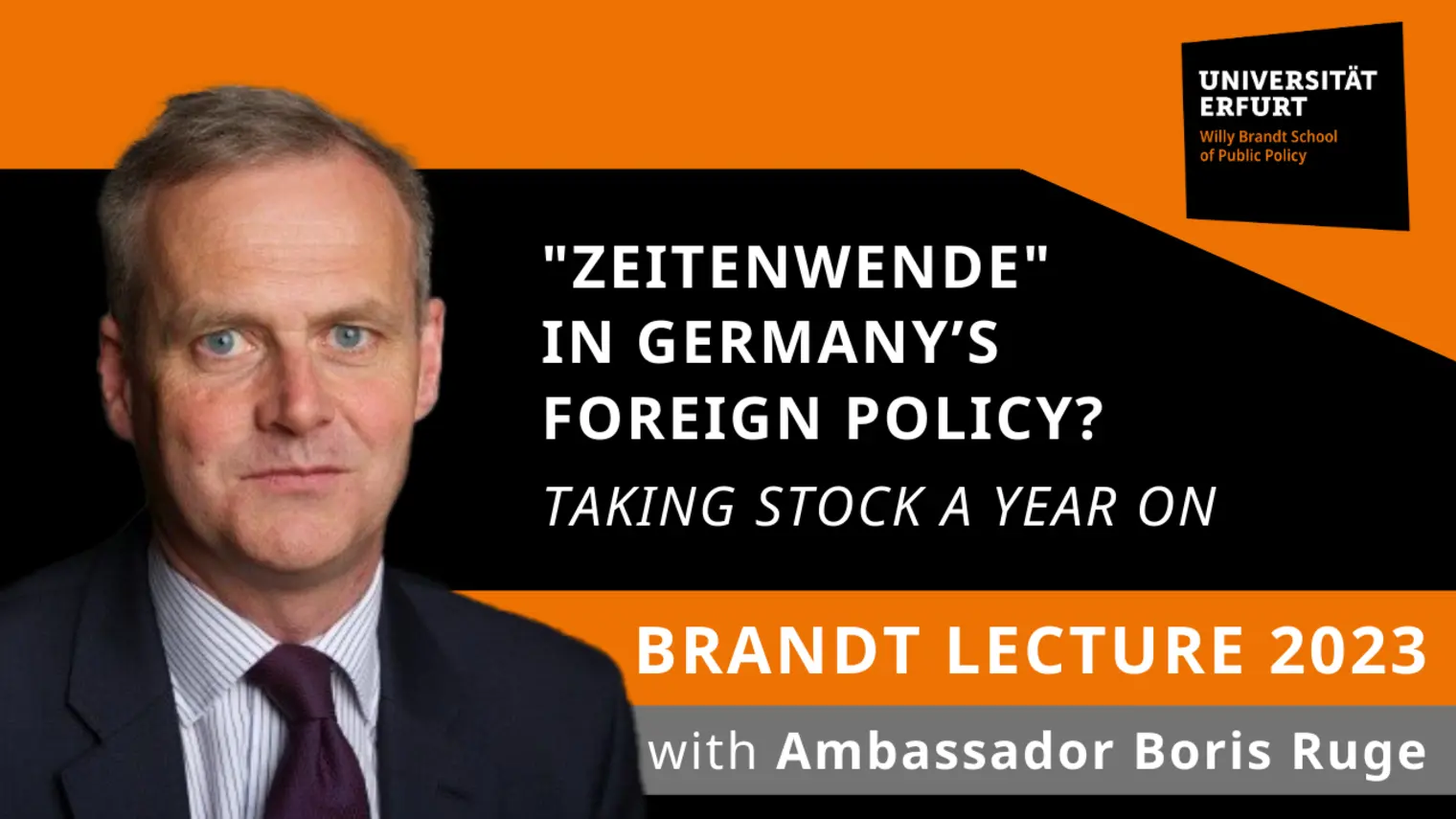
Please note: Once you watch the video, data will be transmitted to Youtube/Google. For more information, see Google Privacy.
The Brandt Lecture pays tribute to Willy Brandt, former chancellor of Germany, head of the North-South Commission and namesake of the Public Policy School at the University of Erfurt. Brandt Lectures look at what issues are worth reflecting on more deeply and go beyond day-to-day discussion of politics.
This year’s guest, Ambassador Boris Ruge, has served as Director of Middle East/North Africa in the German Foreign Office, German Ambassador to Saudi Arabia, and Deputy Ambassador to the United States. Most recently he was the Vice Chairman of the Munich Security Conference. He spoke in his personal capacity, not representing his organizations.
Ambassador Ruge briefly discussed his diplomatic career, which began just six months before the fall of the Berlin Wall and spoke about how honored he was to be invited to speak at a lecture series named after Willy Brandt. He sketched the legacy of this great political leader whose Eastern policy (Ostpolitik) had often been misinterpreted by descendant Social Democrats during the last decade.
At the core of his lecture, Ambassador Ruge spoke about “Zeitenwende”, which refers to a turning point, a significant moment after which things are not as they once were.
The word gained broad attention in Germany when federal chancellor Olaf Scholz used the term in February 2022 to describe the tectonic shift to the European strategic environment after Russia’s invasion of Ukraine. Taking Scholz’ understanding of the term and assessing criteria such as budget, (military) hardware, support for Ukraine, a change in the strategic mindset, trust building towards partners, and more agile decision-making, Ambassador Ruge concluded that there has been a significant shift in German foreign policy since the Russian invasion of Ukraine.
However, already in 2020, the Munich Security Conference had published a report called “Zeitenwende” which revolved around much broader and more globally relevant changes to the existing world order in terms of the rise of new powers – particularly China -, the decline of the relative weight of “the West”, the resurgence of power politics, climate change, and disruptive technologies. Accordingly, Ambassador Ruge warned that Germany and Europe must look beyond the Russian aggression and put more effort into responding to these broader global paradigm shifts.
The lecture was well attended by Willy Brandt School and Uni Erfurt students alike, and after an interesting lecture by Ambassador Ruge there was a lively Q and A session. Attendees had the opportunity to ask the Ambassador questions about German foreign policy changes, shifts in the world order and career paths for diplomats.
Author: 1st year MPP student Lara Kristin Schüth
To learn more about his thoughts, watch he whole lecture here.
You are in the news section of the Willy Brandt School of Public Policy.
Further news, press releases and current topics can be found on the "News" pages of the University of Erfurt.